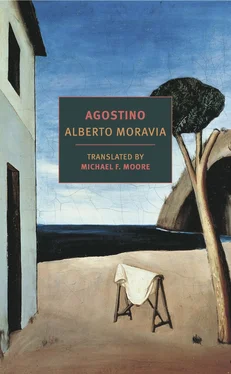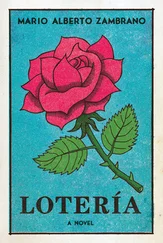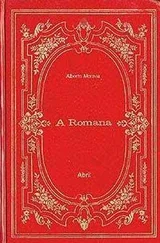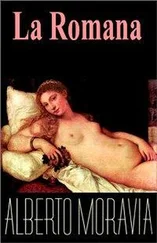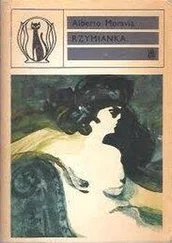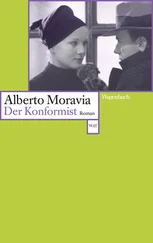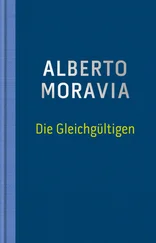IN THE early days of summer, Agostino and his mother used to go out to sea every morning on a small rowboat typical of Mediterranean beaches known as a pattino. At first she brought a boatman along with them, but Agostino gave such clear signs of annoyance at the man’s presence that the oars were then turned over to him. He rowed with deep pleasure on the smooth, diaphanous, early-morning sea, and his mother, sitting in front of him, would speak to him softly, as joyful and serene as the sea and sky, as if he were a man rather than a thirteen-year-old boy. Agostino’s mother was a big and beautiful woman still in her prime, and Agostino was filled with pride every time he got in the boat with her for one of their morning rides. All the bathers on the beach seemed to be watching, admiring his mother and envying him. Convinced that all eyes were on him, he felt as if he were speaking louder than usual, behaving in a special way, enveloped in a theatrical, exemplary air as if, rather than on a beach, his mother and he were onstage before an audience of hundreds of watchful eyes. Sometimes she would appear in a new bathing suit, and he could not help but make a loud remark, secretly hoping that others would overhear him. Or she would send him to fetch something from their cabin, while she stood waiting on the shore by the boat. He would obey with a hidden joy, happy to prolong the spectacle of their departure, if only for a few moments. Finally they would climb on board the boat, and Agostino would take hold of the oars and push off. But the intensity of his filial vanity and the turmoil of his infatuation would linger for many years to come.
When they were a good distance from the shore, the mother would tell her son to stop, and she would put on a rubber bathing cap, remove her sandals, and slip into the water. Agostino would follow. They would swim around the pattino , whose oars had been left unsecured, conversing in merry voices that echoed loudly over the silent sea, calm and filled with light. Sometimes the mother would point to a piece of cork floating in the distance and challenge her son to a race. She would give him a short lead and then, with powerful strokes, take off toward the cork. Or they would have diving competitions, breaching the clear smooth water with their bodies. Agostino would see the mother’s body plunge into a circle of green bubbles, and he would jump in right after her, ready to follow her anywhere, even to the bottom of the sea. He would dive into the mother’s wake and feel as if even the cold compact water conserved traces of the passage of that beloved body. After the swim, they would climb back on board, and the mother, looking around herself at the calm and luminous sea, would say, “Isn’t it lovely today?” Agostino didn’t reply because his pleasure in the beauty of the sea and sky was related, he felt, mainly to the profound intimacy of his relations with his mother. Without that intimacy, he sometimes found himself thinking, would it still be so beautiful? The two of them would dry themselves languorously in the sun, which became more ardent with the approach of midday. Then the mother would stretch out on the plank connecting the twin hulls of the boat. Lying on her back with her hair in the water, face to the sky, and eyes closed, she appeared to doze off. All the while Agostino, in his seat, would look around, look at the mother, and hold his breath lest he disturb her sleep. Occasionally she would open her eyes and say how good it felt to lie on her back with her eyes closed and feel the water rippling and flowing underneath her. Or she would ask Agostino to pass her the cigarette case, or better yet to light a cigarette and pass it to her, which Agostino would do with tremulous, painstaking care. Then the mother would smoke in silence, and Agostino would remain hunched over, his back to her but his head twisted to the side, so as to catch the little puffs of blue smoke that indicated where her head was resting, her hair radiating out in the water. Then the mother, who never seemed to tire of the sun, would ask Agostino to row and not turn around: in the meantime she would remove the top of her bathing suit and lower the bottoms so as to expose her whole body to the sunlight. Agostino rowed and felt proud of his assignment, as if it were a ritual in which he was allowed to participate. Not only did he never think of turning around but he felt as if her body, lying there behind him, naked in the sun, was shrouded in a mystery to which he owed the greatest veneration.
One morning the mother was under the beach umbrella, and Agostino, sitting on the sand next to her, was awaiting the hour when they usually went for their row. All at once a shadow obstructed the sunlight shining down on him: Looking up, he saw a tanned, dark-haired young man extending a hand to the mother. He paid him no mind, thinking it was the usual chance encounter, and moving away a bit, he waited for the conversation to end. But the young man did not accept an offer to sit down. Pointing toward the shore at the white pattino he’d arrived on, he invited the mother to accompany him on a boat ride out to sea. Agostino was sure she would turn down the invitation, like the many others that had preceded it. Much to his surprise, he saw her readily accept, gathering her things — sandals, bathing cap, and bag — and jumping to her feet. She had welcomed the young man’s proposal with the same friendly and spontaneous ease that characterized her relations with her son. And with the same ease and spontaneity, she turned to Agostino, who had remained seated with his head bowed, intent on the sand sifting through his clenched fist, and told him to go ahead and have a swim by himself; she was going for a short ride and would be back in a little while. The young man, in the meantime, with a self-assured air, was already on his way to the boat. The woman was walking behind him, meekly, with her usual languid and majestic serenity. Looking at them, the son could not help but admit that the pride, vanity, and emotion he had felt during their outings on the sea must now be in the young man’s heart. He saw the mother climb aboard the boat and the young man, his body leaning back and his feet planted firmly, pull the boat away from the shallow waters of the shore with a few vigorous strokes. The young man rowed, the mother sat in front of him, holding on to the seat with both hands, and they seemed to be chatting. Then the boat grew smaller and smaller, entered into the blinding light that the sun spread over the surface of the sea, and slowly dissolved into it.
Left alone, Agostino stretched out on his mother’s lounge chair and, with one arm tucked behind his neck and his eyes fixed on the sky, adopted a pensive and indifferent attitude. Since every bather on the beach must have noticed his trips with his mother in the past few days, they would have remarked that today she had left him behind to go off with the young boatman. This was why he must not betray the annoyance and disappointment that he was feeling. But try as he might to feign an air of composure and serenity, he still felt that everyone could read in his face how forced and petty his attitude was. What offended him most wasn’t so much the mother’s preference for the young man as the quick almost premeditated joy with which she accepted his invitation. It was as if she had decided not to let the opportunity slip away and to seize it without hesitation as soon as it presented itself. It was as if all those days on the sea with him she had been bored and had only come along for lack of better company. One memory confirmed his ill humor. He had gone to a ball at a friend’s house with his mother. During the first dance, a female cousin who was upset at being ignored by the men consented to dance a couple of rounds with him, the boy in short pants. But she had danced gracelessly, with a long sullen face. And although he was absorbed in minding his dance steps, Agostino quickly picked up on her unkind and contemptuous attitude. All the same he invited her for a third round and was surprised to see her smile and stand up quickly, smoothing out the wrinkles in her skirt with both hands. But rather than run into his arms, she walked past him toward a young man who, looming behind Agostino, had beckoned to her to dance. The scene lasted no longer than five seconds, and no one noticed except Agostino. But he was mortified beyond measure and had the impression that everyone had witnessed his humiliation.
Читать дальше
